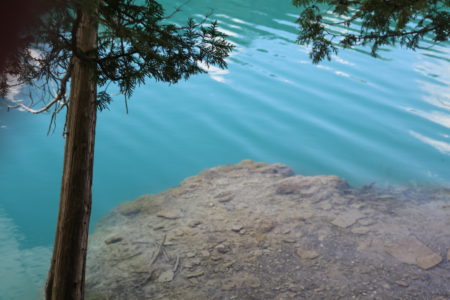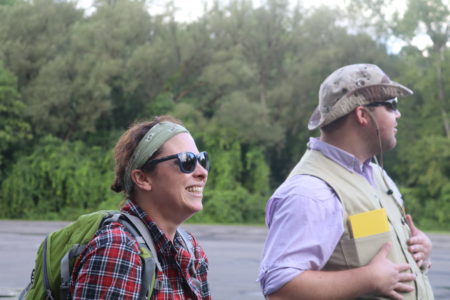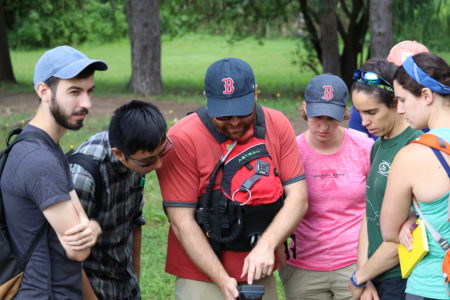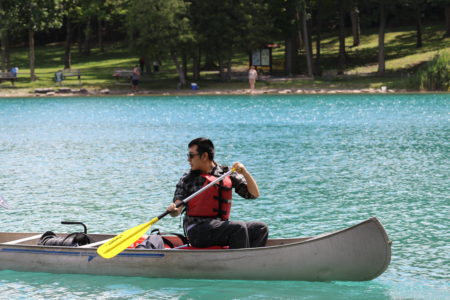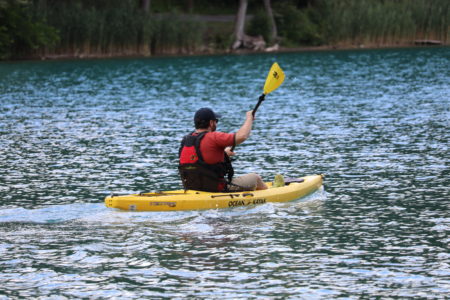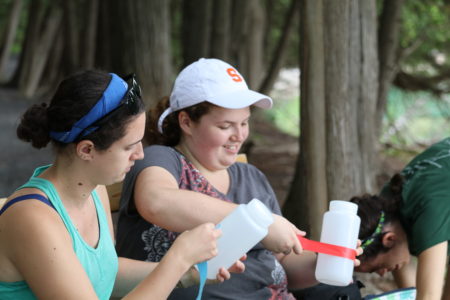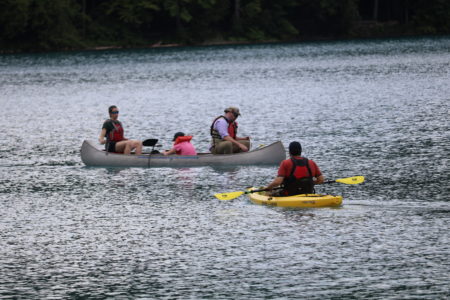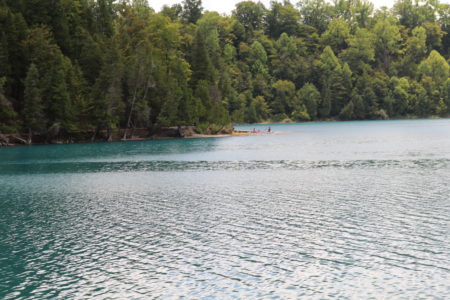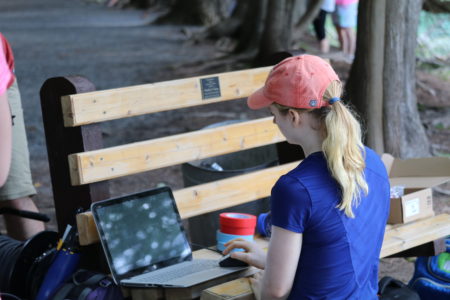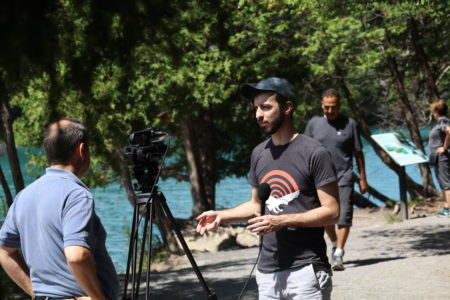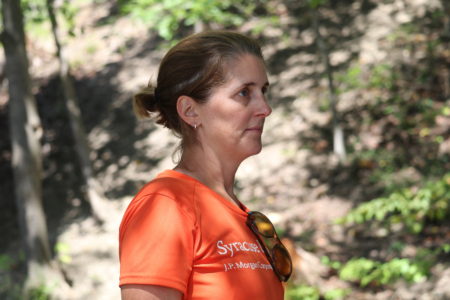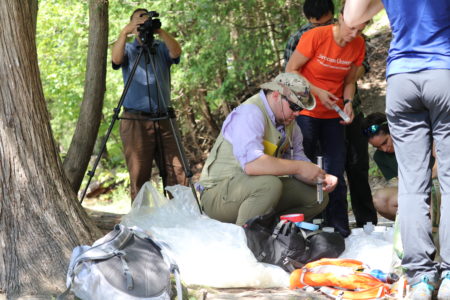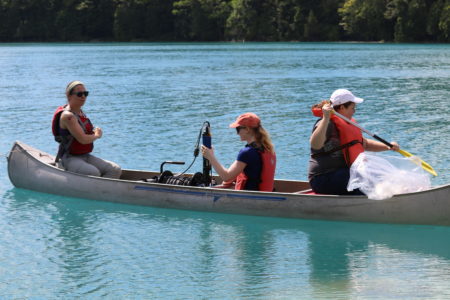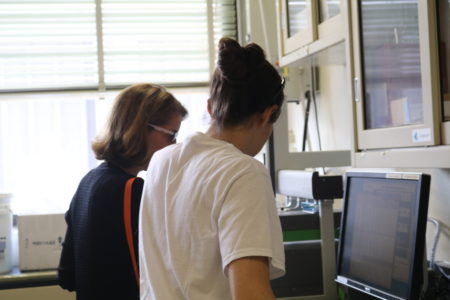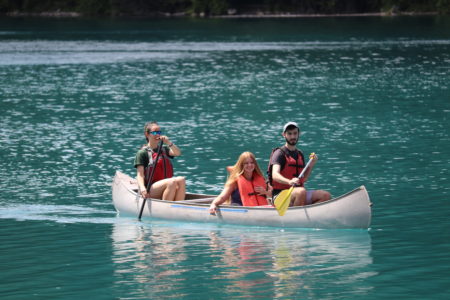EMPOWER’s Water-Energy Field Course started just a few days ago and already the students have discussed articles, developed research questions, collected lake water samples and data, worked in the lab, and analyzed data. The graduate students enrolled in the class are from the chemistry, Earth sciences, and civil & environmental engineering departments. These ten students, with their varied backgrounds and expertise, are guided in the first portion of the field course by Drs. Laura Lautz and Chris Junium.
The first day of the field course was spent in the classroom, learning about the origin and chemistry of Green Lakes, discussing research articles and field techniques, and formulating research questions.
On the second day, the group travelled to Green Lakes to sample lake water and collect data. It was a long day, with students spending a lot of time on the lake collecting samples. Each student had the opportunity to try out the equipment on the lake. Samples were taken from many points to see how surface waters vary spatially across the lake. Students have found substantial differences in the chemistry at varying points throughout the lake. Water column data were also collected from three profiles that were over 45 m deep. One group of students is particularly interested in how isotopes vary at different depths. After the samples were collected, teams of students headed back to campus to process the samples in the lab. Some students stayed in the lab until 11 pm!
The third day has been spent analyzing the data and processing more samples. Students will be presenting their findings later this week and then heading out on Friday for a geology field trip.
The second week of the field course will be spent at Hubbard Brook Long-Term Ecological Research (LTER) site in New Hampshire. Led by Drs. Charley Driscoll and Chris Johnson, EMPOWER trainees will have the opportunity to tour the forest, take samples and measurements on Mirror Lake, and conduct in-stream tracer addition experiments.
